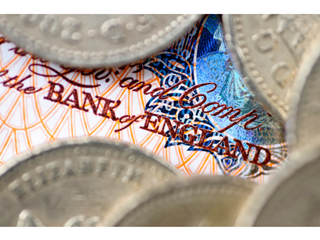
The decision could have an effect on your savings, ISA, mortgage, and disposable income.
The Bank of England (BOE) raised interest rates today from 0.50% to 0.75%.
This decision can be largely owed to Russia’s invasion of Ukraine, which will likely push inflation in the UK higher.
“Higher interest rates are supposed to help cool inflation, but prices have risen due to reasons largely outside of the Bank of England’s and the Government’s control - the cost of petrol, food and other day-to-day items is rising because of global events,” said Annabelle Williams, Personal Finance specialist at Nutmeg.
“Although this is a small increase to interest rates which have been hovering close to record lows for many years now, many will be looking to see if the increase is passed on to consumers through higher savings rates,” she said.
This is the first time the Monetary Policy Committee (MPC) has raised rates on three successive meetings in more than two decades. With this in mind, how can these rate increases affect your personal finances?
“On the face of it a rate rise looks good for savers, but high inflation spoils the party,” said Becky O’Connor, Head of Pensions and Savings at interactive investor.
In theory, a base rate increase should force banks to increase the interest on their savings accounts, which means savers can access better deals. But this trend has been hard to identify with recent rate hikes and there isn’t a savings account on the market which offers an inflation-beating rate.
“As we have seen time and time again, there is no guarantee savings providers will boost their rates because of a BOE rate rise and even if they do it could take a few months to trickle through to customers. Should savers see 0.25% passed onto them, it would mean receiving £50 more a year in interest based on a £20,000 investment,” Rachel Springall, Finance Expert at Moneyfacts, said in her article today.
She also urged savers at high-street banks to consider their loyalty and, where possible, to switch to challenger banks which offer better rates.
“Challenger banks and building societies have not been shy to compete in the easy access space, and if they have the same protections in place as the biggest high-street banks, then there is little reason to overlook them in favour of a more familiar brand,” Springall said.
Those invested in Stocks and Shares Individual Savings Accounts (ISA) will have to keep a close eye on the stock market in the months to come as it has a significant impact on your returns.
This is because when base rates are raised, the cost of borrowing becomes more expensive for companies, which ultimately makes them riskier as an investment.
However, with ISA season in full swing, putting your money in this investment vehicle does have its tax benefits. You can read more about the tax advantages of ISAs in one of our recent articles.
Businesses will not be the only ones to be affected by an increased cost in borrowing as those with variable mortgages will be affected too. It is estimated that mortgage payments will increase for around two million households, according to UK Finance.
“Anyone on a variable rate mortgage will see their interest rates go up – mortgage companies are very quick to pass on the base rate hike,” said Laura Suter, Head of Personal Finance at AJ Bell.
She then illustrated the increase in costs with a real example. Someone with a variable mortgage of £250,000 will pay an extra £384 a year. Furthermore, if the base rate jumped by another 0.25% at the next rate decision in May, then that extra cost would be £768 a year.
Likewise, if you are currently in the market for a fixed-rate mortgage, these rates will likely increase too.
“It’s likely mortgage lenders will continue to increase fixed rates which will be a shock to many households at a time when bills are increasing,” said Adrian Anderson, Director of Property Finance Specialists.
With fixed rates still at relatively low levels, Rachel Winter, Associate Investment Director at Killik & Co, has encouraged mortgage seekers to look at fixed term rates.
In fact, recent Moneyfacts data has found an increased search volume for 10-year fixed rate mortgages on our site. We believe this heightened interest to result from consumers looking for certainty in their payments.
Information is correct as of the date of publication (shown at the top of this article). Any products featured may be withdrawn by their provider or changed at any time. Links to third parties on this page are paid for by the third party. You can find out more about the individual products by visiting their site. Moneyfactscompare.co.uk will receive a small payment if you use their services after you click through to their site. All information is subject to change without notice. Please check all terms before making any decisions. This information is intended solely to provide guidance and is not financial advice. Moneyfacts will not be liable for any loss arising from your use or reliance on this information. If you are in any doubt, Moneyfacts recommends you obtain independent financial advice.